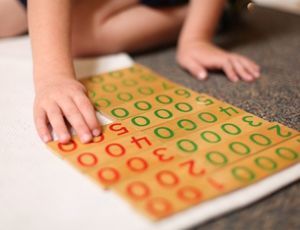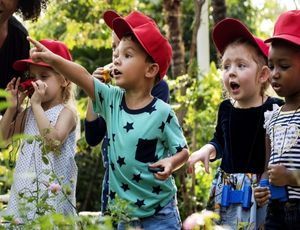Praise Vs. Encouragement
Supporting Independence with Encouragement
By: Marcia Kidd
“The essence of independence is to be able to do something for one’s self. Adults work to finish a task, but the child works in order to grow, and is working to create the adult, the person that is to be. Such experience is not just play… it is work he must do in order to grow up.”
Dr. Maria Montessori
At all levels, Montessori education stresses the importance of independence. Recognizing that authentic self-esteem comes from our ability to do something successfully and independently, MSL teachers are committed to developing capable and confident students – “can-do kids,” preparing one step at a time to take their place in the world. Montessori teachers nurture independence in several ways.
First, the teacher sets the student up for success. Having observed your child’s readiness and interest level for a specific lesson, the teacher gives the training (lesson) that is necessary for success – in other words, a well-thought-out and precise lesson presentation. Her words and movements are precise, the layout and order of lesson steps are logical, and the materials used are complete and appropriate to the needs of the lesson and the size of the child.
Secondly, as your child works to master the lessons presented, the teacher refrains from helping and encourages your child to work independently as much as possible. In all aspects of school life (academic, social, practical life, personal care, problem-solving), teachers support as needed, but are also careful to heed Montessori’s words:
“Never help a child with a task at which he feels he can succeed.”
Finally, Montessori philosophy also supports independence by the manner in which feedback is given to students. At MSL, you may have noticed the absence of smiley faces, gold stars, high fives, and “good jobs.”
The choice to provide feedback in the form of ENCOURAGEMENT rather than PRAISE is another important way in which teachers intentionally support the growth of intrinsic motivation, independence and healthy self-esteem.
While the intention of praise is to encourage our children, research has shown that praise can actually negatively impact motivation and learning. In a study conducted by Stanford University psychologist Carol Dweck, children as young as 14 months were observed to have already begun forming opinions about themselves based on praise given by parents and caregivers. Even as toddlers, these children had begun to avoid activities they perceived to be challenging (Bright Horizons). “Praise teaches dependency on external feedback (I’m ‘okay’ if you like what I do, and I feel badly if you don’t like what I do), while encouragement teaches internal validation (I use self-evaluation to determine how I feel about what I do)” (Nelsen).
Our job as parents and educators is to support the development of the whole child. How we provide feedback to children’s efforts can impact their long-term self-esteem and openness to learning new skills. Encouraging independence communicates faith in our children’s abilities.
Resources:
- Positive Parenting Encouragement Vs. Praise
- Encouragement Vs. Praise for Teachers
- The Difference Between Praise and Encouragement
- Praise Phrases vs alternative Encouragement Phrases (Nelsen, Jane)
Alternatives to praise
that offer encouragement:
- You did it.
- Last week, riding your bicycle was challenging, but you kept trying and today you did it!
- You worked really hard on that!
- Can you show me how you did that?
- You thought about it and came up with a brand new idea.
- You figured it out!
- How does it feel to finish your project?
- What do you think about your work?
Consider the effects of praise versus encouragement:
PRAISE
- Connotes judgment; can be used to manipulate behavior
- Promotes comparison and competition among students
- Focuses on quality of performance and assigns judgment
- Can create anxiety, fear of failure, giving up
- Fosters dependency on external feedback
ENCOURAGEMENT
- Fosters internal motivation, self-knowledge, independence, growth
- Promotes cooperation and contribution for the good of all
- Focuses on effort and progress
- Helps children become comfortable with failure, fosters determination
- Promotes self-evaluation






